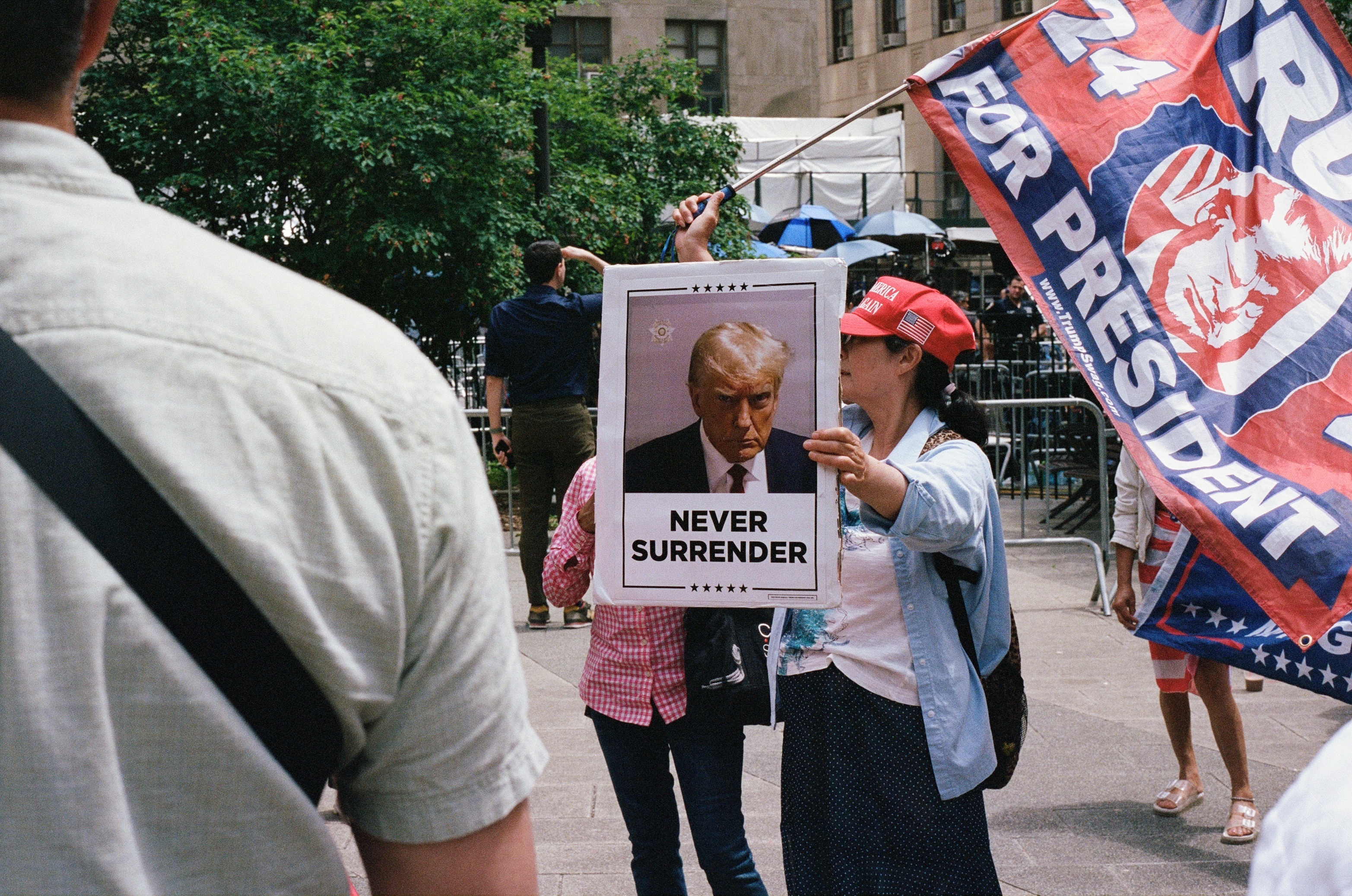Donald Trump's Latest, and Mai El-Sadany's Latest
My phone just flashed a New York Times update at me: "Donald Trump Calls for Barring Muslims from Entering the U.S.":
Published by The Lawfare Institute
in Cooperation With

My phone just flashed a New York Times update at me: "Donald Trump Calls for Barring Muslims from Entering the U.S.":
Donald J. Trump called on Monday for the United States to bar all Muslims from entering the country until the nation’s leaders can “figure out what is going on,” an extraordinary escalation of his harsh rhetoric aimed at members of the Islamic faith in the aftermath of the terrorist attacks in Paris and San Bernardino, Calif.
“Without looking at the various polling data, it is obvious to anybody the hatred is beyond comprehension. Where this hatred comes from and why we will have to determine,” said Mr. Trump, the leading Republican candidate for his party’s 2016 presidential nomination.
“Until we are able to determine and understand this problem and the dangerous threat it poses, our country cannot be the victims of horrendous attacks by people that believe only in jihad, and have no sense of reason or respect for human life,” he said.
A spokeswoman for Mr. Trump confirmed the authenticity of the statement. Asked what prompted it, Mr. Trump said, “death,” according to the spokeswoman.
Moments before this showed up on my phone, I had tweeted the following:
Moving piece by @maitelsadany on being an American Muslim the past few weeks: https://t.co/iRT7bc7Jxl
— Benjamin Wittes (@benjaminwittes) December 7, 2015
Mai El-Sadany has written for Lawfare on human rights in Egypt and is a good Twitter resource on matters Egypt. I have never met her in person. But I am excerpting her piece here because there are apparently a lot of people who need to be reminded about the consequences of the sort of rhetoric Trump is so casually thorwing around. They apparently also need to be reminded who Muslims in America really are. That's a bummer in 2015, but there it is.
It seems to me particularly important for those of us who favor more, rather than less, robust counterterrorism tools to take an uncompromisingly strong position about this sort rhetoric. Those of us who believe in strong measures against terrorists have to understand that the tools we are advocating are awesomely powerful and dangerous. You don't have to mix in very much bigotry and hatred and stupidity before the brew you create becomes irredeemably toxic. Those of us who advocate the use of these tools have a duty to protect them from those who would speak or think like Donald Trump—and a duty to make sure the public understands the difference between targeting, capturing, detaining and trying terrorists and deploying the harsh tools of state power against a generic religious category. It's not a conversation our society should, at this stage, need to have. But apparently we do.
I commend to readers El-Sadany's piece in its entirety:
the last few days, weeks, and months have been frustrating, angering, depressing, and shocking. I have received BCC’ed emails from family friends asking whether my loved ones and I are “safe.” I have heard friends talking about wearing beanies to replace their everyday hijabs to avoid attracting attention while travelling. I have thought twice about responding to Arabic emails from my client while sitting at a crowded airport lounge. A college friend of mine has been pulled off of a plane, had her passport confiscated, and made to miss her international flight simply for being Muslim — and Black. And for the first time in my adult life, a man came up to me on the side of the road and asked “when the last time my father beat me” had been.
. . .
I look to my family and I see a computer executive who has excelled in his field and personified the American Dream at its finest. I see a community volunteer who spends hours dedicating her life to teaching children. I see products of the American public schooling system: an international human rights lawyer who serves her country in the nation’s capital, a start-up entrepreneur, a high school student who has traveled to Nicaragua to build schools and work with impoverished children.
I remember family quizzes to prepare our parents for their citizenship exams (although they knew most of the answers already). I recall receiving emails from my mother demanding that I vote and that being in the midst of mid-term exams would be no excuse. I have vivid — albeit dreaded — memories of preparing tax returns with my father.
But my family is no exception — rather, they are the rule. Everywhere around the United States, American Muslims are lawyers, doctors, engineers, teachers, plumbers, real estate agents. They are executives, volunteers, and community organizers. They are award-winning rap artists, legendary musicians, and remarkable comedians.




